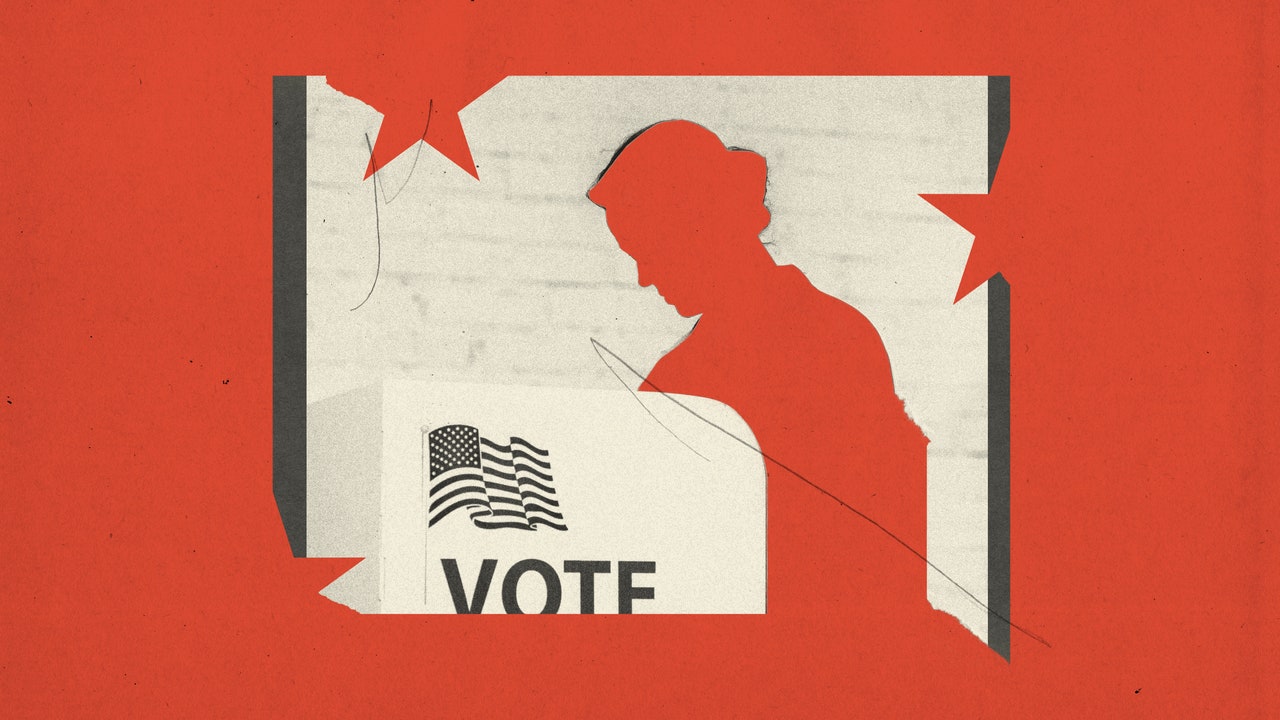La primera vez que podría haber votado, no lo hice. Tenía 18 años en 2004. Era un novato. No miraba las noticias. Probablemente estaba en una fiesta o viendo un pretencioso VHS o besando a alguien con zapatillas Vans. Era difícil percibir la elección—entre un hombre blanco de traje que había iniciado una guerra interminable y otro hombre blanco de traje cuyas políticas parecían solo un poco menos problemáticas—como algo personal. No podría haber estado más equivocado.
Todos poseemos el tema que nos lleva a actuar, ese que nos afecta lo suficiente como para inspirarnos a participar políticamente. Para algunos, es el cambio climático destruyendo sus hogares; para otros, su experiencia con los préstamos estudiantiles. Para mí, fue cuando mi cuerpo empezó a fallarme, un desarrollo que finalmente me permitió entender cuán interconectada está cada crisis que enfrenta nuestra nación. Nuestro sistema de salud es el lugar donde se encuentran todos los tipos de injusticia. Pero, como muchas cosas en la vida, tuve que verlo para creerlo, para comprender lo que las feministas de la segunda ola querían decir al gritar: “Lo personal es político”.
No es un secreto que he sido un viajero cansado a través del complicado mundo médico-industrial. He escrito extensamente para esta revista sobre mi historia con la endometriosis y el dolor crónico, las vueltas sin fin que di solo para obtener respuestas, las visitas a la sala de emergencias por todo el país cuando los síntomas estaban fuera de control (a menudo he bromeado que podría escribir un libro titulado Un Médico en Cada Puerto), y la histerectomía radical que finalmente fue necesaria. Lo que he escrito menos es sobre los hombres—tantos hombres—que conocí en ese recorrido. (Aunque aproximadamente el 85% de los ginecólogos en ejercicio son mujeres, el 62% de los médicos en ejercicio son hombres, y representan alrededor de dos tercios del campo médico de emergencia.) Algunos eran doctores establecidos, otros eran internos, algunos anestesiólogos. Había quienes me enviaron a casa sangrando demasiado, explicándome mi periodo como si estuviera en una clase de salud de quinto grado. Había quienes me miraban con escepticismo cuando calificaba mis calambres como un 10 en la escala del dolor. Había quienes con descuido metían la mano dentro de mí como si yo fuera un coche con un motor averiado y no una mujer humana sufriendo ante la intrusión descuidada.
Después de mi primera cirugía para la endometriosis, me ubicaron en el departamento de urología de un prestigiado hospital de Nueva York. Las habitaciones eran mucho más agradables, explicó mi doctor (fuera de la red, cabe mencionar, y encontrado después de buscar por todos lados y por fin consultar con la Endometriosis Foundation of America). Un hombre adinerado con cáncer de próstata hizo una generosa donación que permitía la presencia de paneles de madera y televisores de pantalla plana en lugar de las paredes amarillentas y descascaradas y los televisores diminutos con tres canales en obstetricia y ginecología. Me dijeron que debía caminar todos los días después de la cirugía, ocho veces por el pasillo. Llevaba mi bolsa de IV al lado de hombres llamados Frank y Bob, quienes hablaban tranquilamente sobre deportes mientras las enfermeras los guiaban. Pensé en las mujeres de arriba, esperando a que les cambiasen la cuña, preguntándose quién se había olvidado de ellas. Pensé en las mujeres en hospitales estatales y prisiones que verían la descuidada ala de obstetricia como un increíble ascenso. Pensé en las mujeres esperando fuera de las salas de emergencia de todo el país, demasiado asustadas para ingresar y enfrentar el costo. Pensé en las mujeres que ni siquiera considerarían aparcar fuera.
